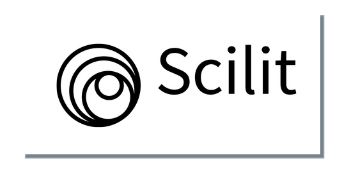A Challenge To Treat Hypoglycemia For The Diabetic Elderly Patient In Daily Clinical Practice
DOI:
https://doi.org/10.11594/jk-risk.02.3.7Keywords:
Diabetes Mellitus, elderly, hypoglycemia, insulinAbstract
Background: Hypoglycemia is an acute complication that often occurs in daily clinical practice. The incidence of hypoglycemia is increased, one of which is by age factors and the use of insulin.
Case Presentation: A 66-years old Indonesian woman with obesity (BMI=35.2 kg/m2) came to Emergency Department (ED) with decreased of consciousness due to a skipped meal after a prandial insulin injection with errors in calculating insulin dose. She had Diabetes Mellitus type 2 since 10 years ago and got insulin prescription since last year. The random blood sugar (RBG) was 27 mg/dl. Patient was administered intravenous D40% 75ml and the symptoms was improved. Patient was diagnosed this patient with severe hypoglycemia. During hospitalization, patient’s blood sugar had fluctuation in 2 days consecutive mornings and began to stable in day 3 on ward. When the patient discharged, we prescribed 24U basal insulin given before bed if the RBG level >200mg/dl.
Discussion: In older population, the neuroglycopenic symptoms, such as lethargy, dizziness, and delirium appear in higher BG level than the autonomic symptoms. The disproportion of demand and supply of blood glucose in the brain causes the neuroglycopenic symptoms. In addition, those signs are also likely to be misinterpreted as signs of stroke, dementia, or vision problems. This cycle of misidiagnosed and the tendency of neuroglypenic symptoms lead the older population into hypoglycemia unawareness.
Conclusion: Hypoglycemia unawareness is one of the warning signs of the severity of Diabetes Mellitus type 2 caused by multiple factors which has high prevalence in the elderly. Therefore, particular management is needed in this population by selecting the suitable glucose-lowering agent considering individualized patient preferences rather than focusing on the glycemic target.
Downloads
References
American Diabetes Association Professional Practice Committee. 4. Comprehensive Medical Evaluation and Assessment of Comorbidities: Standards of Medical Care in Diabetes—2022. Diabetes Care. 2022 January 1;45(Supplement_1):S46–59.
Tim Penyusun Buku Pedoman pengelolaan dan pencegahan diabetes melitus tipe 2 dewasa di Indonesia - 2021. Pedoman pengelolaan dan pencegahan diabetes melitus tipe 2 dewasa di Indonesia - 2021. Jakarta: PB PERKENI; 2021.
Freeman J. Management of hypoglycemia in older adults with type 2 diabetes. Postgraduate Medicine. 2019 May 19;131(4):241–50.
Abdelhafiz AH, Rodríguez-Mañas L, Morley JE, Sinclair AJ. Hypoglycemia in Older People - A Less Well Recognized Risk Factor for Frailty. Aging and disease. 2015;6(2):156.
Kaewput W, Thongprayoon C, Varothai N, Sirirungreung A, Rangsin R, Bathini T, et al. Prevalence and associated factors of hospitalization for dysglycemia among elderly type 2 diabetes patients: A nationwide study. WJD. 2019 March 15;10(3):212–23.
Fukuda M, Doi K, Sugawara M, Naka Y, Mochizuki K. Survey of Hypoglycemia in Elderly People With Type 2 Diabetes Mellitus in Japan. J Clin Med Res. 2015;7(12):967–78.
Saftarina F. Case Report: Type 2 Diabetes Mellitus for The Elderly with Less Family Support. rpcpe. 2021 July 25;4(2):22.
Sandooja R, Moorman JM, Priyadarshini Kumar M, Detoya K. Critical Low Catastrophe: A Case Report of Treatment-Refractory Hypoglycemia following Overdose of Long-Acting Insulin. Isozaki O, editor. Case Reports in Endocrinology. 2020 October 19;2020:1–5.
Mansyur AM. Hipoglikemia Dalam Praktik Sehari-Hari. Makassar: Internal Medicine Departement of Medical Faculty of Hasanuddin University; 2018.
American Diabetes Association. 6. Glycemic Targets: Standards of Medical Care in Diabetes—2022. Diabetes Care. 2022 Jan;45(Supplement_1):S83–96.
Lin YK, Fisher SJ, Pop‐Busui R. Hypoglycemia unawareness and autonomic dysfunction in diabetes: Lessons learned and roles of diabetes technologies. J Diabetes Investig. 2020 Nov;11(6):1388–402.
Sharifi Y, Ebrahimpur M, Tamehrizadeh SS. Hypoglycemic unawareness: challenges, triggers, and recommendations in patients with hypoglycemic unawareness: a case report. J Med Case Reports. 2022 Dec;16(1):283.
Cabré C, Colungo C, Vinagre I, Jansà M, Conget I. Frequency and awareness of hypoglycemia in patients with Type 2 Diabetes treated with two or more insulin injections in primary care outpatient clinics. Primary Care Diabetes. 2020 Apr;14(2):168–72.
Tsai SH, Lin YY, Hsu CW, Cheng CS, Chu DM. Hypoglycemia Revisited in the Acute Care Setting. Yonsei Med J. 2011;52(6):898.
Sethuraman VK, Viswanathan S, Aghoram R. Refractory Hypoglycemia and Seizures as the Initial Presenting Manifestation of Empty Sella Syndrome. Cureus [Internet]. 2018 Jun 13 [cited 2022 Oct 22]; Available from: https://www.cureus.com/articles/12233-refractory-hypoglycemia-and-seizures-as-the-initial-presenting-manifestation-of-empty-sella-syndrome
Tariq K, Tariq S, Denney Queen AM. Role of Steroids in Refractory Hypoglycemia Due to An Overdose of 10,000 Units of Insulin Glargine: A Case Report and Literature Review. AACE Clinical Case Reports. 2018 Jan;4(1):70–4.
Tim Penyusun Buku Pedoman Petunjuk Praktis Terapi Insulin Pada Pasien Diabetes Mellitus 2021. Pedoman Petunjuk Praktis Terapi Insulin Pada Pasien Diabetes Mellitus 2021. Jakarta: PB PERKENI; 2021.
Munshi MN, Slyne C, Segal AR, Saul N, Lyons C, Weinger K. Simplification of Insulin Regimen in Older Adults and Risk of Hypoglycemia. JAMA Intern Med. 2016 Jul 1;176(7):1023.
Giannakopoulos A, Efthymiadou A, Chrysanthakopoulou A, Chrysis D. Hypoglycemia-Associated Autonomic Failure in Type 1 Diabetes: Beyond Hypoglycemia Unawareness. Clinical Diabetes. 2022 Apr 1;40(2):250–2.
Yalamanchi SR. Chapter 19. Hypoglycemia Unawarness. In: Diabetes Clinical Case Series-I. New Delhi: Jaypee The Health Science Publisher; 2016.
Downloads
Published
Issue
Section
License
Authors who publish with this journal agree to the following terms:
- Authors retain copyright and grant the journal the right of first publication with the work simultaneously licensed under a Creative Commons Attribution License that allows others to share the work with an acknowledgement of the work's authorship and initial publication in this journal.
- Authors can enter into separate, additional contractual arrangements for the non-exclusive distribution of the journal's published version of the work (e.g., post it to an institutional repository or publish it in a book), with an acknowledgement of its initial publication in this journal.
- Authors are permitted and encouraged to post their work online (e.g., in institutional repositories or on their website) before and during the submission process, as it can lead to productive exchanges and earlier and greater citation of published work (See The Effect of Open Access).
















